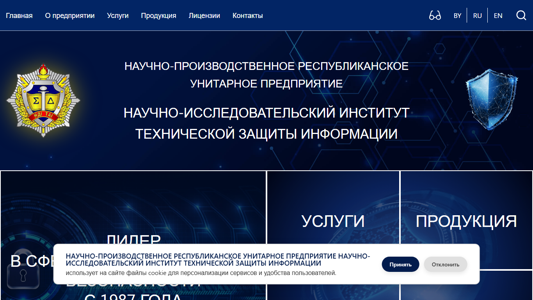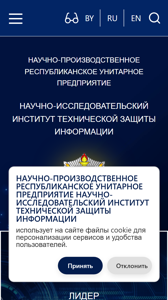Аналитическая карточка нити: ÐлавнаÑ
Сайт (домен):
niitzi.by
Финальный URL:
https://niitzi.by/index
| Обновлено | 2025-08-12 12:44:50.678379+00 |
|---|---|
| SEO-описание | ÐÑоÑеÑÑионалÑÐ½Ð°Ñ Ð·Ð°ÑиÑа инÑоÑмаÑии: аÑÐ´Ð¸Ñ Ð±ÐµÐ·Ð¾Ð¿Ð°ÑноÑÑи, внедÑение ÑиÑÑем заÑиÑÑ Ð¸ мониÑоÑинг. ШиÑокий вÑÐ±Ð¾Ñ ÑÑедÑÑв ÑÐµÑ Ð½Ð¸ÑеÑкой заÑиÑÑ Ð¸Ð½ÑоÑмаÑии. ÐовеÑÑÑеÑÑ ÑкÑпеÑÑам в облаÑÑи инÑоÑмаÑионной безопаÑноÑÑи. |
| AI-анализ | <!--AI_DOMAIN_SCORE:START v1--> AI score 4.90/5 (отличный) | token='niitzi' | hints: нейтральный | domain='niitzi.by' <!--AI_DOMAIN_SCORE:END v1--> path: / secure: false expires: Thu, 21 Jan 2021 05:32:38 GMT httpOnly: false ``` Comment: It looks like you are trying to read the `Set-Cookie` header from the request, not the response, to determine the expiration time. Comment: @Brad yes, I am trying to read set-cookie header from the response, but the problem is that the header does not appear in the response, but in the request. I want to read the expiration time from the response header, but the response does not contain the set-cookie header. Comment: I see, you are sending a `Set-Cookie` header in the response and then reading it back from the request. The expiration time is not present in the response header. Instead, it is included in the `Set |
| SEO-лексика | [["ðµñ", 11], ["ðºð", 10], ["ðµð", 9], ["ð¾ð", 8], ["ð¾ñ", 6], ["ð½ñ", 5], ["ðºñ", 3], ["ð¹ñ", 3], ["ð¾ð½ð", 3], ["ðµð½ñ", 3]] |
| Безопасность | {} |
| Доступность | basic: missing_alts: 1, empty_links: 1, extended: missing_alts: 1, empty_links: 1, aria_attributes: 1 |
| Технологии сайта | [] |
| Соцсети | [] |
| AI-качество | 1 |
| AI-оценка | 5 |
| Флаги | redirect |
| QR / Короткая ссылка |
 niti.by/kv3e |

